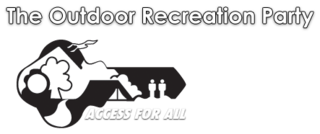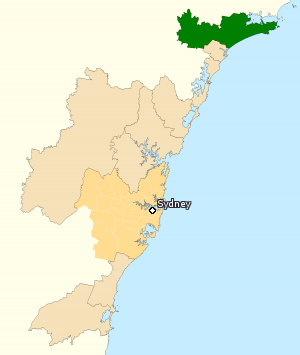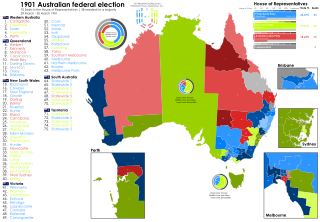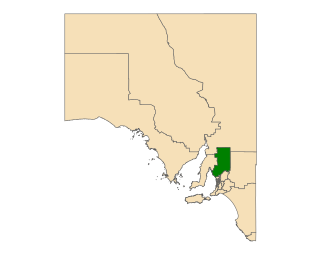
The Australian Democrats is a centrist political party in Australia. Founded in 1977 from a merger of the Australia Party and the New Liberal Movement, both of which were descended from Liberal Party dissenting splinter groups, it was Australia's largest minor party from its formation in 1977 through to 2004 and frequently held the balance of power in the Senate during that time.

The Family First Party was a conservative political party in Australia which existed from 2002 to 2017. It was founded in South Australia where it enjoyed its greatest electoral support. Since the demise of the Australian Conservatives into which it merged, it has been refounded in that state as the Family First Party (2021), where it contested the state election in 2022, but failed to win a seat.
Liberals for Forests was an Australian political minor party. It contested both state and federal elections between 2001 and 2008, but only ever achieved one elected representative – Janet Woollard in Western Australia. It never achieved representation at the federal level.

The Shooters, Fishers and Farmers Party (SFF) is a conservative Australian political party. It primarily advocates for increased funding and services for rural and regional Australia, protecting the right to farm, enhancing commercial and recreational fishing, tougher sentencing for illegal firearm trade and usage, and relaxing gun control for law abiding citizens.

The Unity Party was a small multiculturist party in Australia, formed in 1997 and primarily active in the state of New South Wales. It was formed with the aim of opposing the rise of the controversial anti-immigration politician Pauline Hanson. Although initially billed as a party to unite Australians of all ethnicities against racism, Unity failed to draw significant support outside Australia's East Asian ethnic communities. After the demise of Pauline Hanson as a political force, Unity shifted focus onto ethnic community affairs at a local government level.

The Outdoor Recreation Party (ORP) was a minor political party originating in New South Wales (NSW), Australia. It professed to represent the outdoor community and interests such as cycling, bushwalking, camping, kayaking, 4WD motoring, skiing, fishing and shooting. It was formally allied with the Liberal Democratic Party.

The Division of Paterson is an Australian electoral division in the state of New South Wales. It is located just north of Newcastle, on the coast of the Tasman Sea. The division is named after federation-era poet and author Banjo Paterson and was originally created in 1949 and abolished in 1984. It was recreated after a redistribution in 1992.

The Libertarian Party, formerly known as the Liberal Democratic Party (LDP), is an Australian political party founded in Canberra in 2001. The party espouses smaller government and supports policies that are based on classical liberal, libertarian principles, such as lower taxes, opposing restrictions on civil liberties, decentralisation, uranium mining, and the relaxation of smoking laws.

The 1901 Australian federal election for the inaugural Parliament of Australia was held in Australia on Friday 29 March and Saturday 30 March 1901. The elections followed Federation and the establishment of the Commonwealth of Australia on 1 January 1901. All 75 seats in the Australian House of Representatives, six of which were uncontested, as well as all 36 seats in the Australian Senate, were up for election.

Frome is a single-member electoral district for the South Australian House of Assembly. It is named after Edward Charles Frome, the third surveyor-general of South Australia. The electorate stretches north-eastwards from the Gawler River and Gulf St Vincent in the south, and includes many of the agricultural areas of the Clare and Gilbert Valleys. It covers a total of 12,921 km2 (4,989 sq mi) and takes in the towns of Auburn, Clare, Mintaro, Port Broughton, Saddleworth, Snowtown and Riverton. Prior to the 2020 redistribution, its main population centre was Port Pirie, since transferred to Stuart.
Environmentalists for Nuclear Energy Australia, formerly called Conservatives for Climate and Environment, was a political party registered in Australia from 2007 to 2010. EFN-Australia referred to itself as a not-for-profit environmental association, registered as a political party. It was the Australian affiliate of Environmentalists for Nuclear, and the party campaigned unsuccessfully to gain nuclear power in Australia.
The Progress Party, initially known as the Workers Party, was a minor political party in Australia in the mid-to-late 1970s. It was formed on 26 January 1975, as a free-market right-libertarian and anti-socialist party, by businessmen John Singleton and Sinclair Hill, in reaction to the economic policies of Labor prime minister Gough Whitlam. It operated and ran candidates in Western Australia, the Northern Territory, South Australia, Queensland and New South Wales, but it did not have a central federal structure. Its Western Australian affiliate, which advocated secession from the rest of Australia, did particularly well in the area surrounding Geraldton in the state's Mid West. However, the party failed to win seats at any level of government and had gone out of existence by 1981.

Cannabis political parties are generally single-issue parties that exist to oppose the laws against cannabis.

The United Australia Party (UAP), formerly known as Clive Palmer's United Australia Party and the Palmer United Party (PUP), is an Australian political party formed by mining magnate Clive Palmer in April 2013. The party was deregistered by the Australian Electoral Commission in 2017, revived and re-registered in 2018, and voluntarily deregistered in 2022. The party fielded candidates in all 150 House of Representatives seats at the 2013 federal election. Palmer, the party's leader, was elected to the Division of Fairfax and it reached a peak of three senators following the rerun of the Western Australian senate election in 2014. When the party was revived under its original name in 2018, it was represented by ex-One Nation senator Brian Burston in the federal parliament.

The 2018 South Australian state election to elect members to the 54th Parliament of South Australia was held on 17 March 2018. All 47 seats in the House of Assembly or lower house, whose members were elected at the 2014 election, and 11 of 22 seats in the Legislative Council or upper house, last filled at the 2010 election, were contested. The record-16-year-incumbent Australian Labor Party (SA) government led by Premier Jay Weatherill was seeking a fifth four-year term, but was defeated by the opposition Liberal Party of Australia (SA), led by Opposition Leader Steven Marshall. Nick Xenophon's new SA Best party unsuccessfully sought to obtain the balance of power.
Centre Alliance, formerly known as the Nick Xenophon Team (NXT), is a centrist political party in Australia based in the state of South Australia. It currently has one representative in the Parliament, Rebekha Sharkie in the House of Representatives.

The Australian Federation Party (AFP), also known as AusFeds and formerly known as the Country Alliance and the Australian Country Party, is an Australian political party. Founded in 2004 by four rural Victorians, the party lodged its initial registration with the Victorian Electoral Commission on 15 August 2005.
The Family First Party is an Australian political party based in South Australia, founded on 28 July 2021 by former state Labor ministers Jack Snelling and Tom Kenyon. As of March 2022, Lyle Shelton is the party's National Director.













